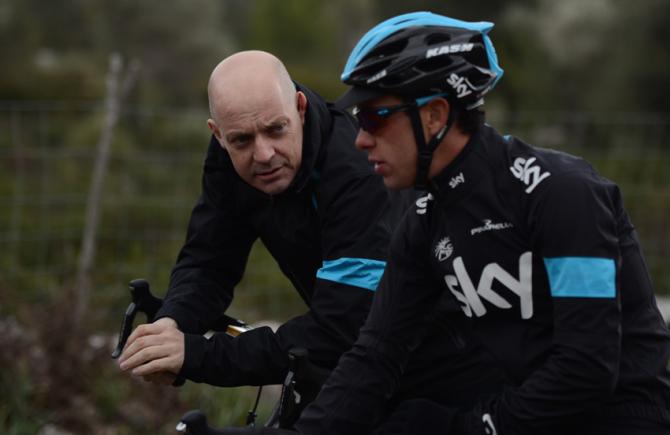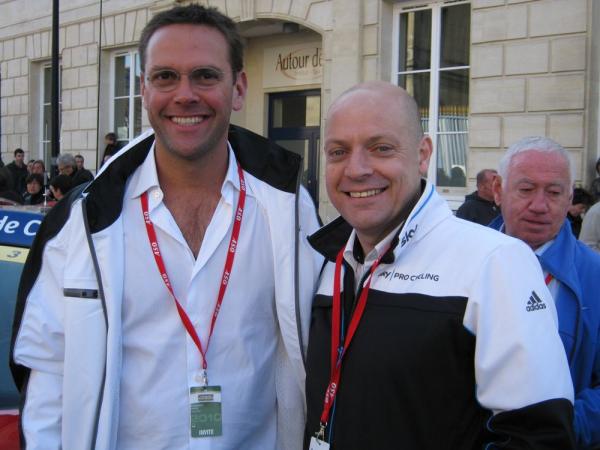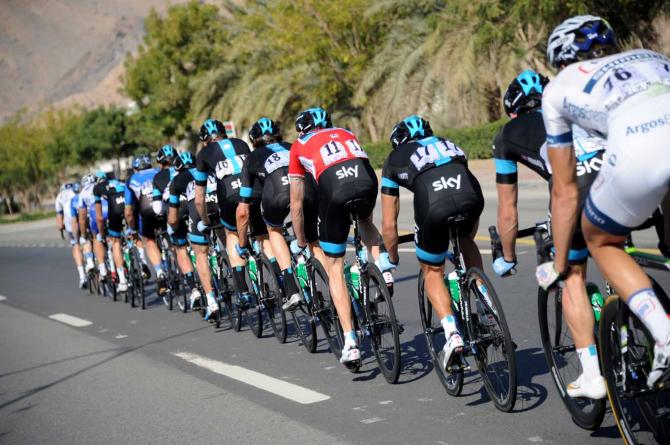Brailsford: Cycling is close to a tipping point
Team Sky manager calls for a new long-term strategy for professional cycling



Team Sky manager Dave Brailsford has suggested that professional cycling is nearing a tipping point which could see the sport, and the business it supports, soon change radically, with a new structure, calendar and business model to replace the current WorldTour structure.
Speaking before a report by Bloomberg suggested that BSkyB - the owners of Team Sky - is in talks to become a partner in the so-called World Series Cycling project created by businessmen Jonathan Price, Brailsford said professional cycling has to change if it wants to survive.
"In most industries there becomes a tipping point where it changes its structure. When you look at all the elements in the sport of cycling at the moment, they're all there. It's getting very close and I can’t see how it can't happen if the sport wants to survive, so it will happen," Brailsford told Cyclingnews.
"I think what the sport needs is a genuine and proper long term strategy. What will the sport look like in ten years' time? What will it look like in five years' time? And how do we go from where we are now to get there?"
Brailsford and Team Sky have been hesitant about signing up to plans to any breakaway project, letting the likes of Garmin-Sharp, Saxo-Tinkoff and Zdenek Bakala's Omega Pharma-Quick Step team drive the project and take any heat from the UCI and the media.
That could change very soon, as plans for the new-look WorldTour or World Series of Cycling become clearer and with the UCI likely to be involved in any final project or management structure. If BSkyB invests in cycling and activates a strategy to drive its pay for view subscriptions thanks to professional cycling, then Team Sky will surely be a part of the new-look structure.
Bloomberg claim that the number of teams that have agreed to be part of the new structure has risen from eight to 12 in recent months, with three other squads holding talks. The current UCI WorldTour is made up of 18 teams, with other teams obtaining wild card invitations to major races.
Get The Leadout Newsletter
The latest race content, interviews, features, reviews and expert buying guides, direct to your inbox!
Brailsford pointed out that it is not necessary to get all the major teams and sponsors on board.
"I don't think it's about having a majority of teams to make it happen. If it’s the right plan, it’s the right plan for everybody. There won't be any resistance because everyone will benefit. You can't have a win-lose scenario, it's got to improve things for everybody. And that's what we need," he said.
"We're heading in the right direction. There's certainly opportunities and if the right people, the right minds and the right stakeholders get together, I think it'll be pretty simple to resolve the problems."
A different business model for cycling
Brailsford reiterated that the key concept for any new structure for professional cycling is to create more stability for the teams and riders thanks to a different business model.
Professional cycling at the highest level is likely to become more like a closed, commercially driven league, much like the football Premier League in Britain or the NBA or the NFL in the USA, with the UCI have far less say in the running of the sport.
Any new business model would include the sharing of TV rights income but include other key aspects.
"There's a whole host of different factors. But as with any strategic plan, you've got marry up the key factors into a single plan," Brailsford said.
"TV rights and revenue to teams is only one small part. At the moment sponsors come and go so quickly, that it's an unreliable financial model: that's the problem. Whether it's TV rights or greater commercialization of the sport, it's about giving the teams and sport more stability. That's the question we have to answer."

Stephen is one of the most experienced member of the Cyclingnews team, having reported on professional cycling since 1994. He has been Head of News at Cyclingnews since 2022, before which he held the position of European editor since 2012 and previously worked for Reuters, Shift Active Media, and CyclingWeekly, among other publications.